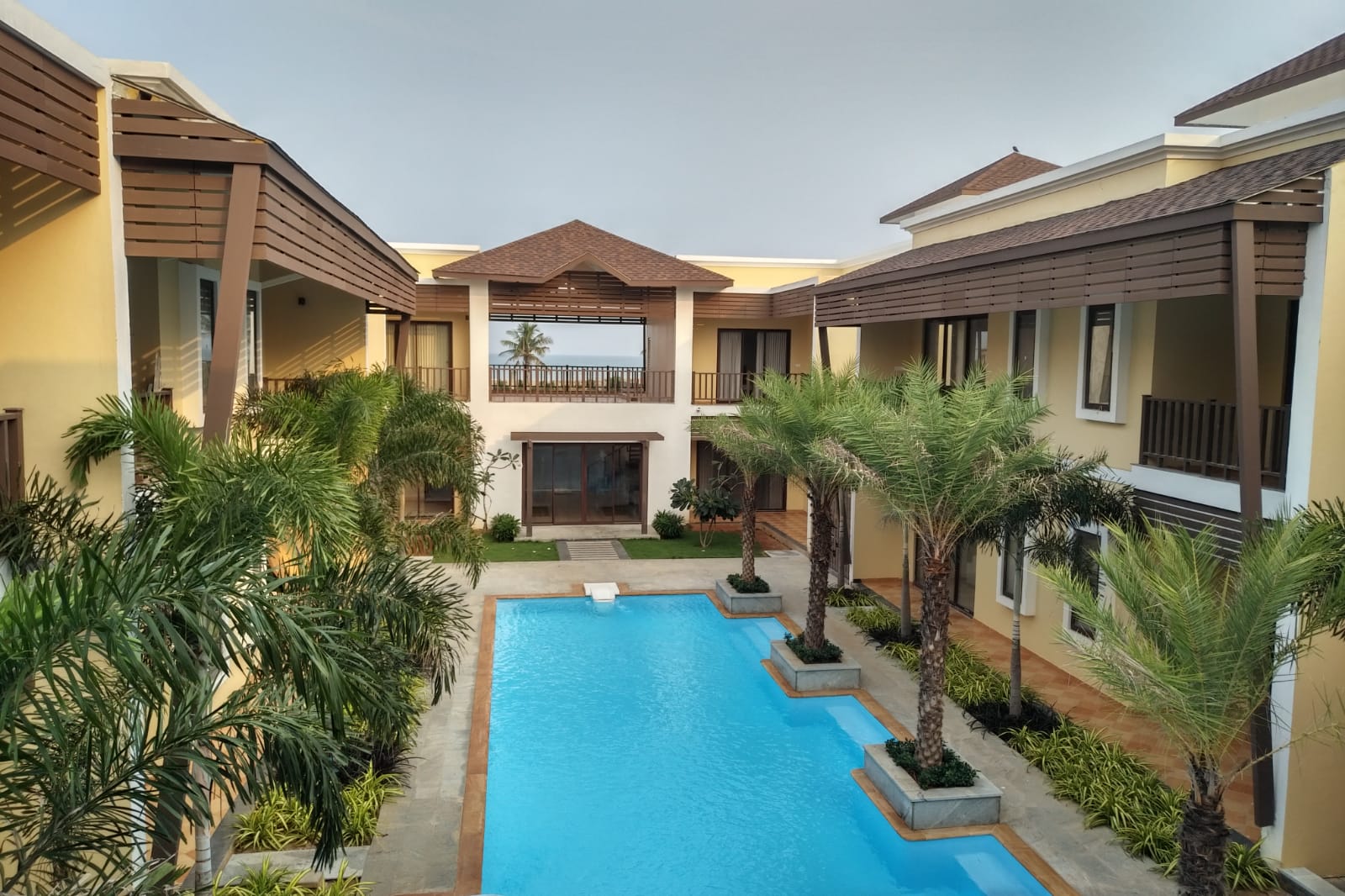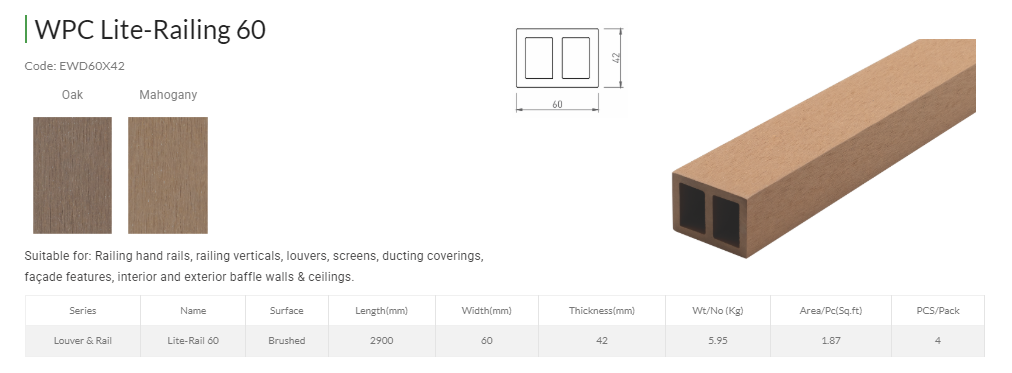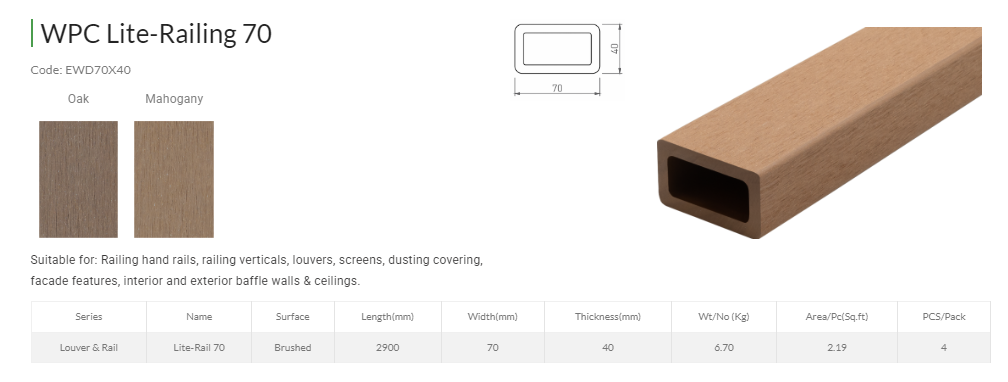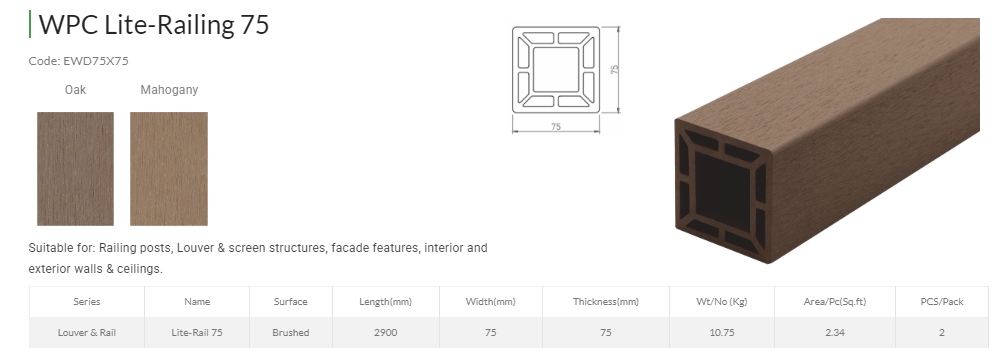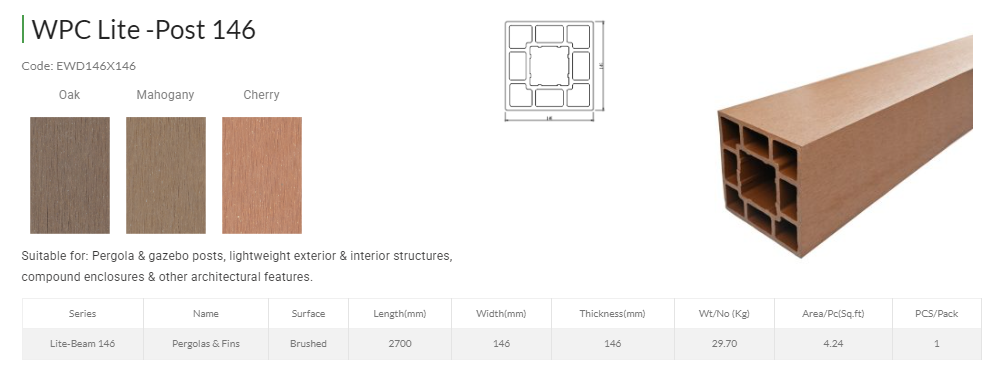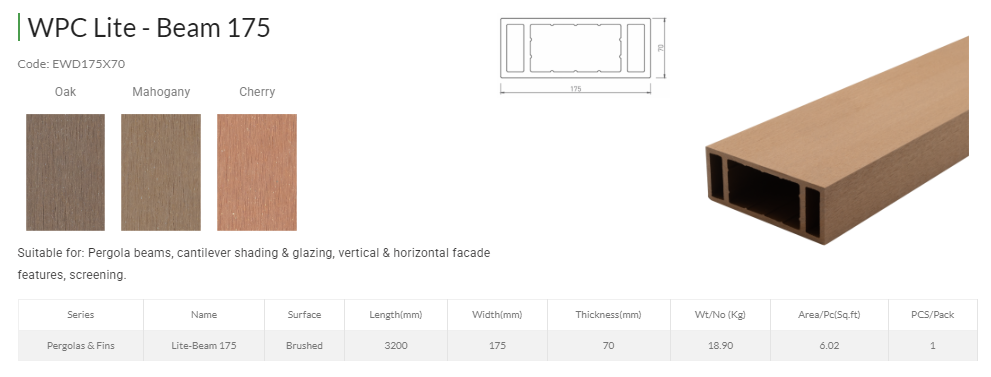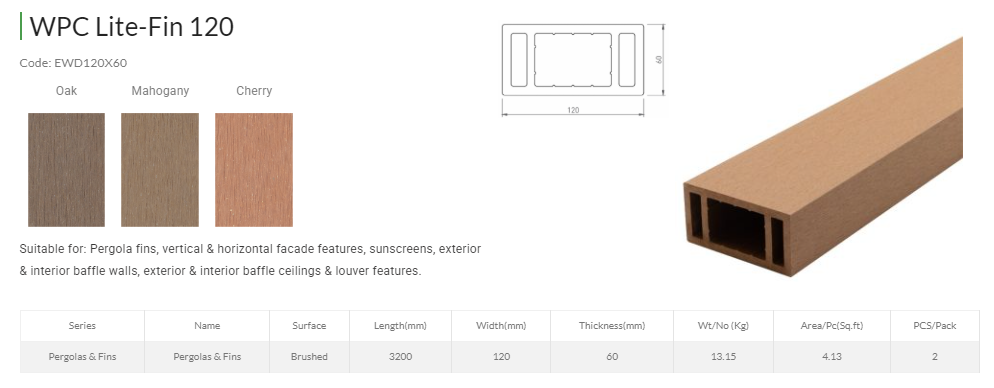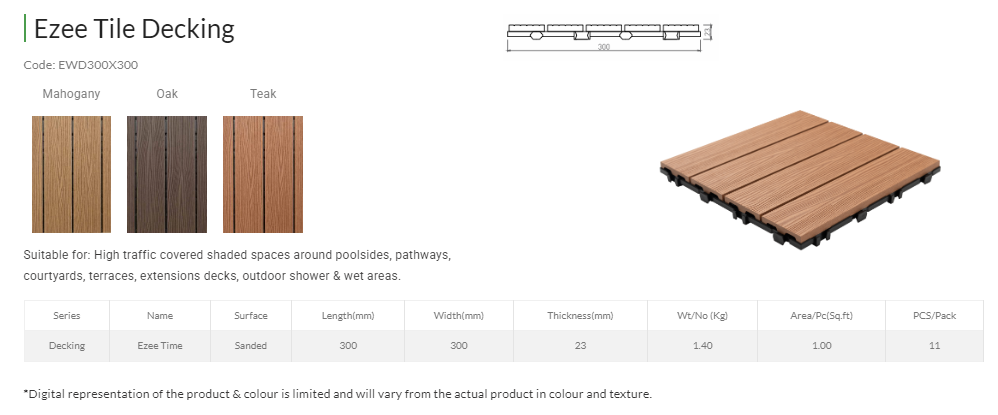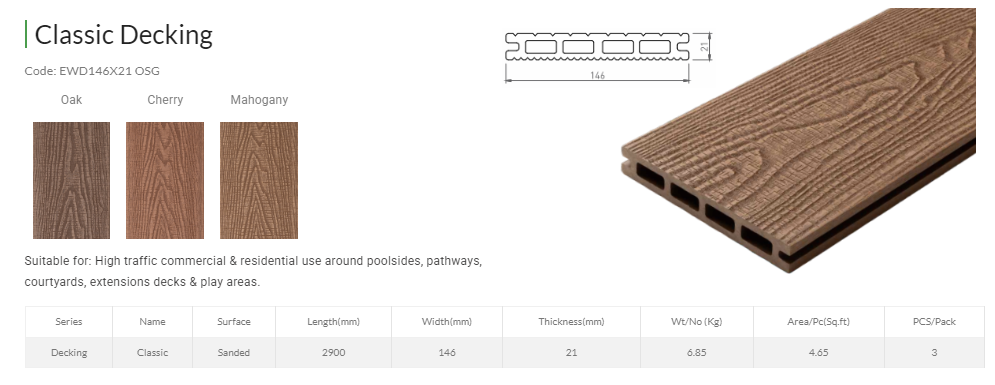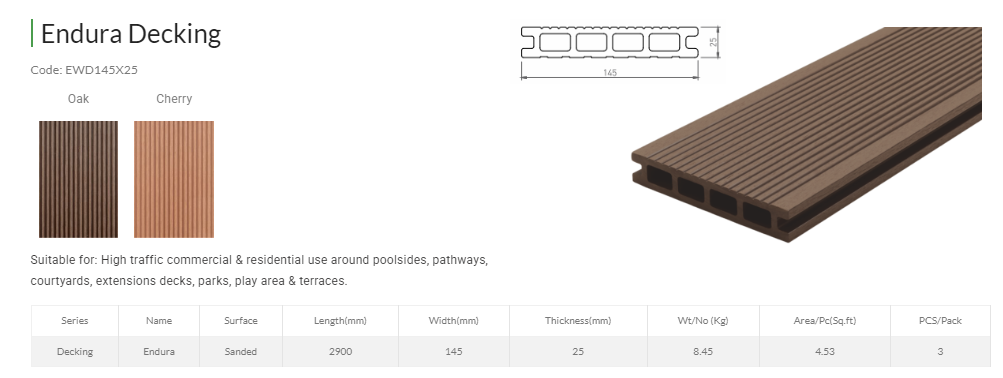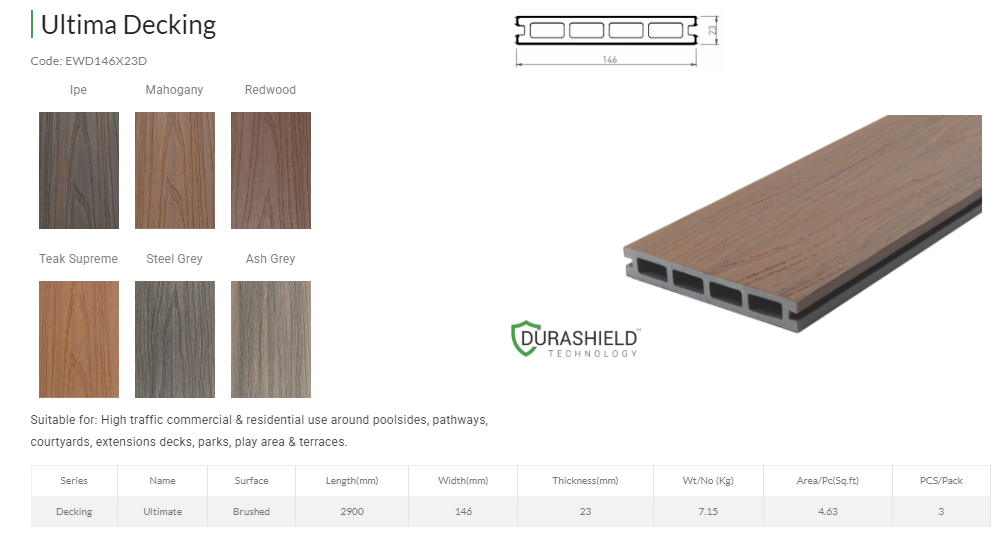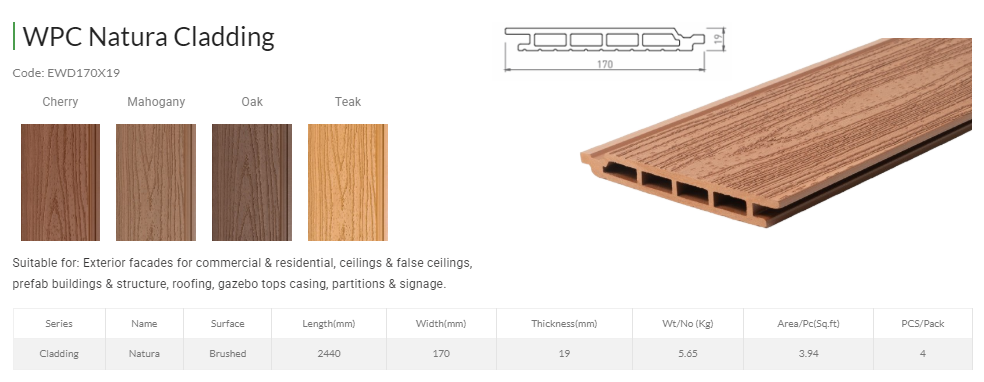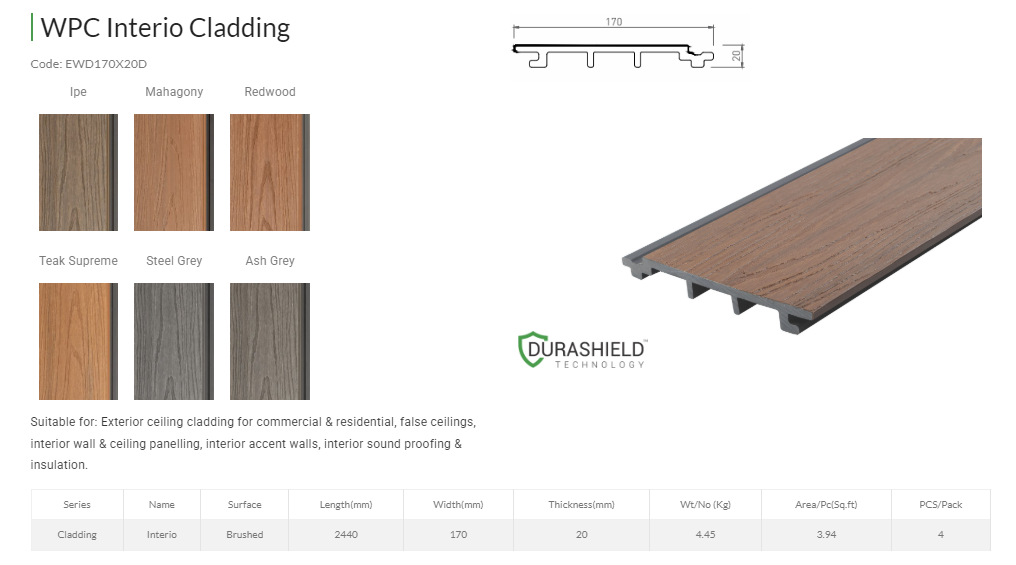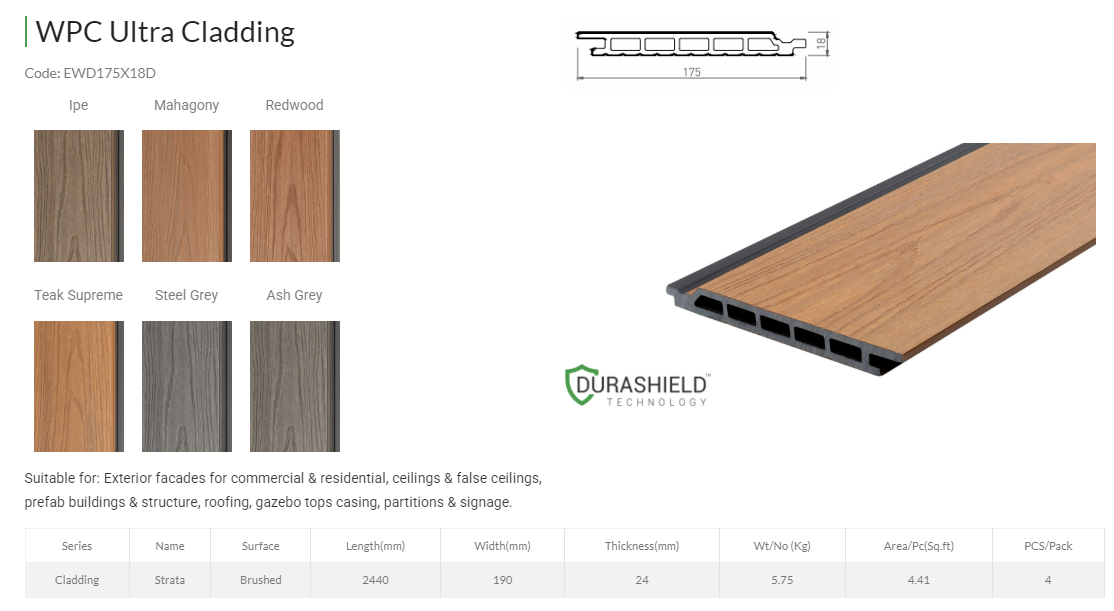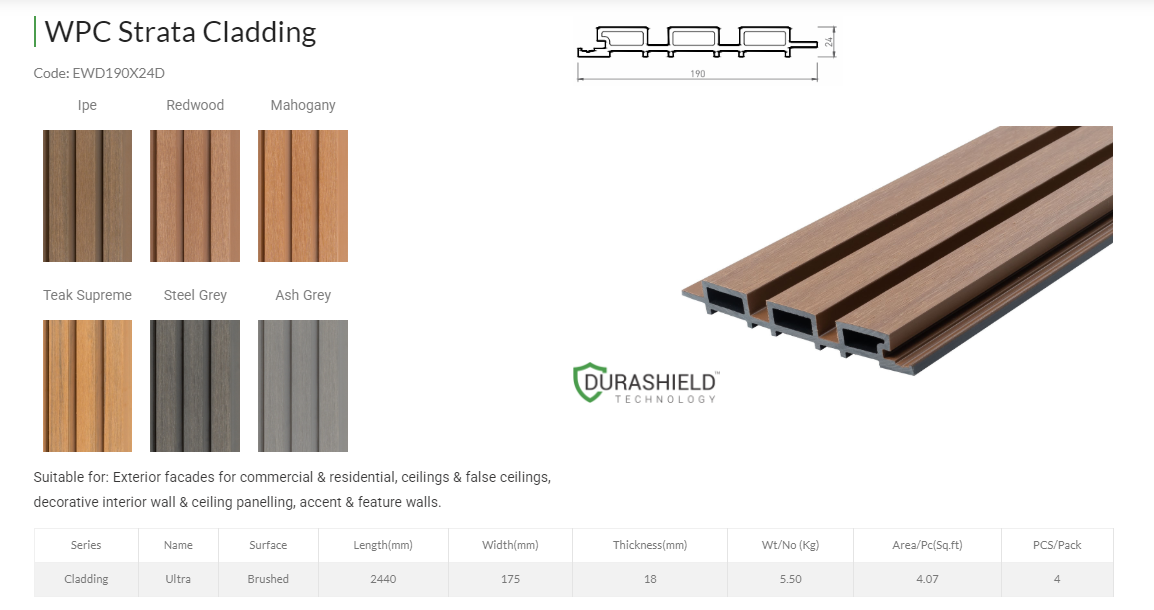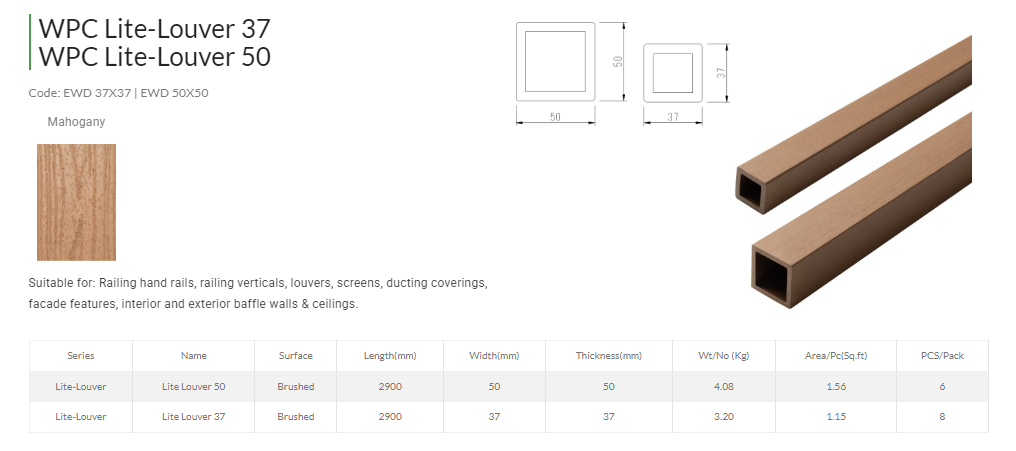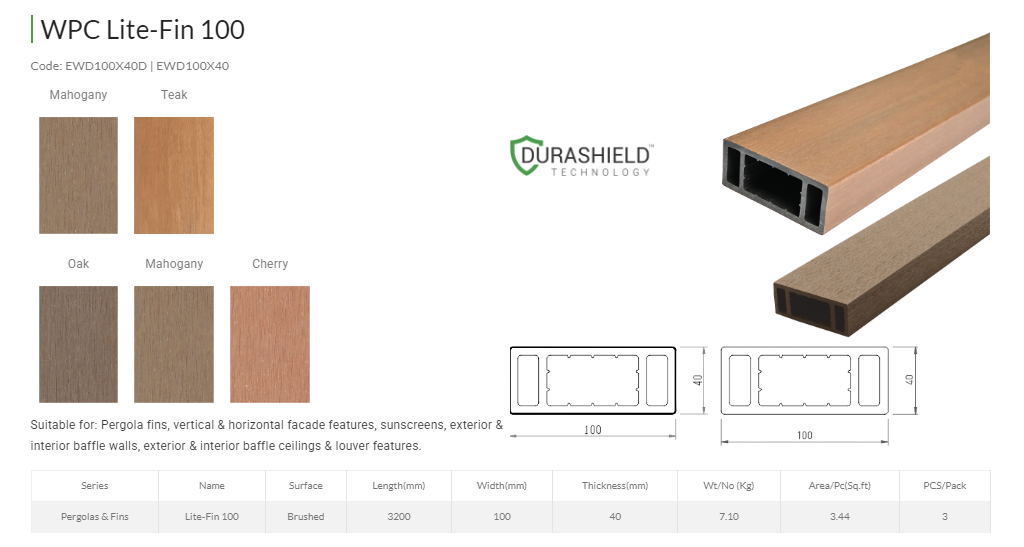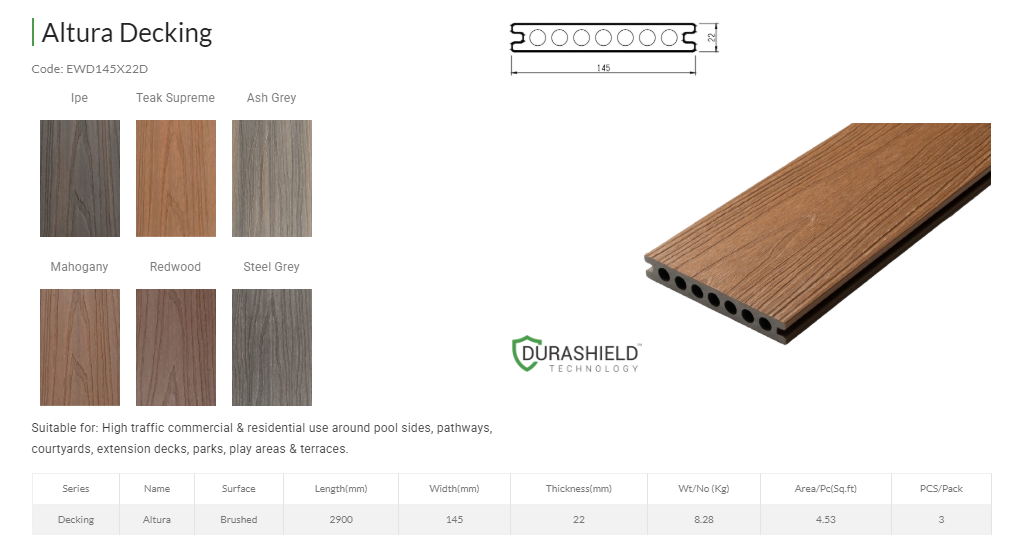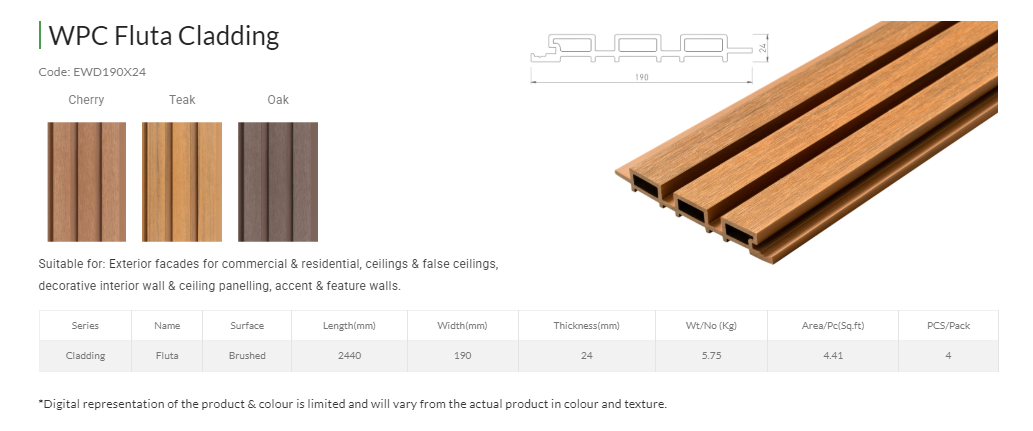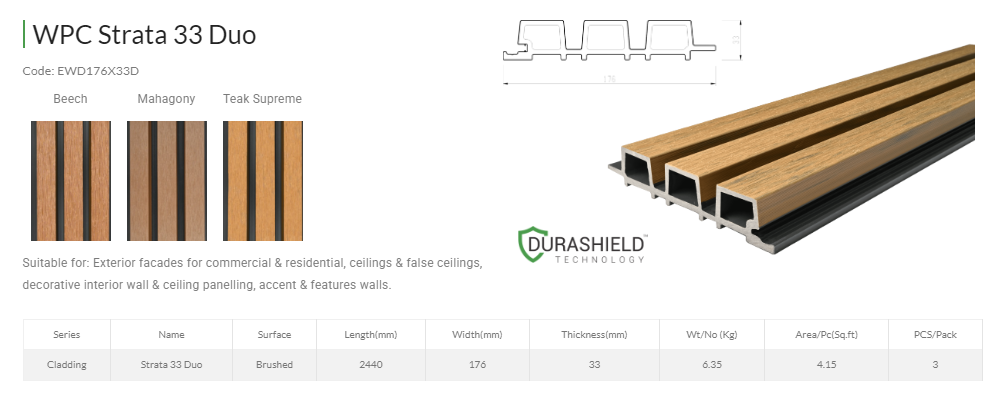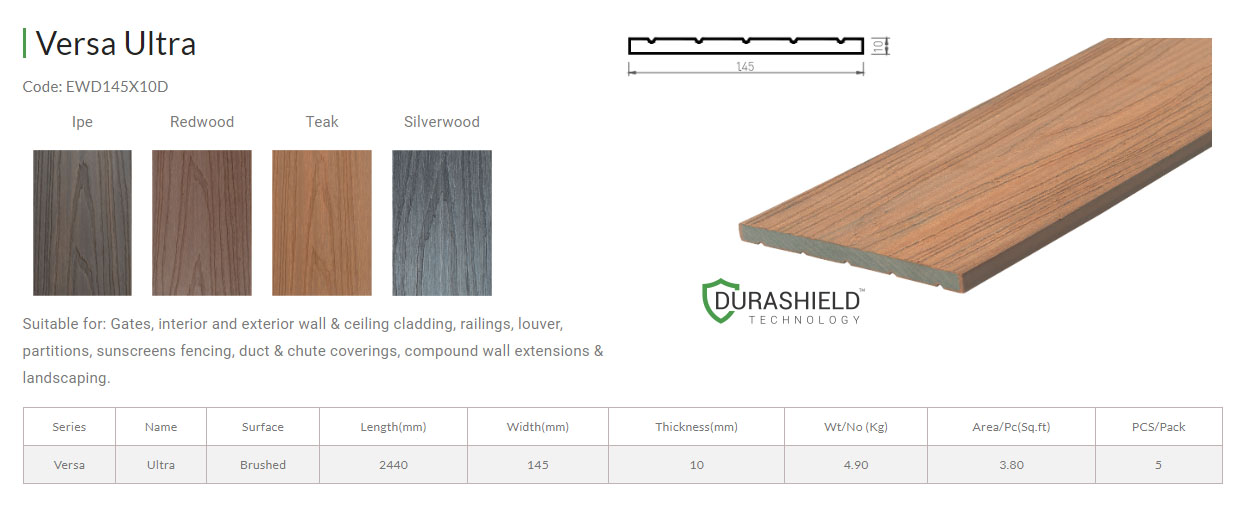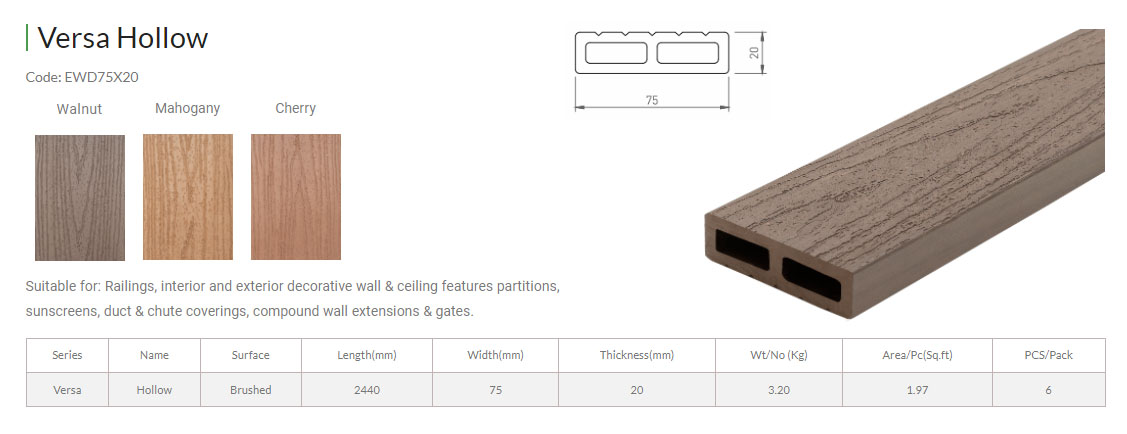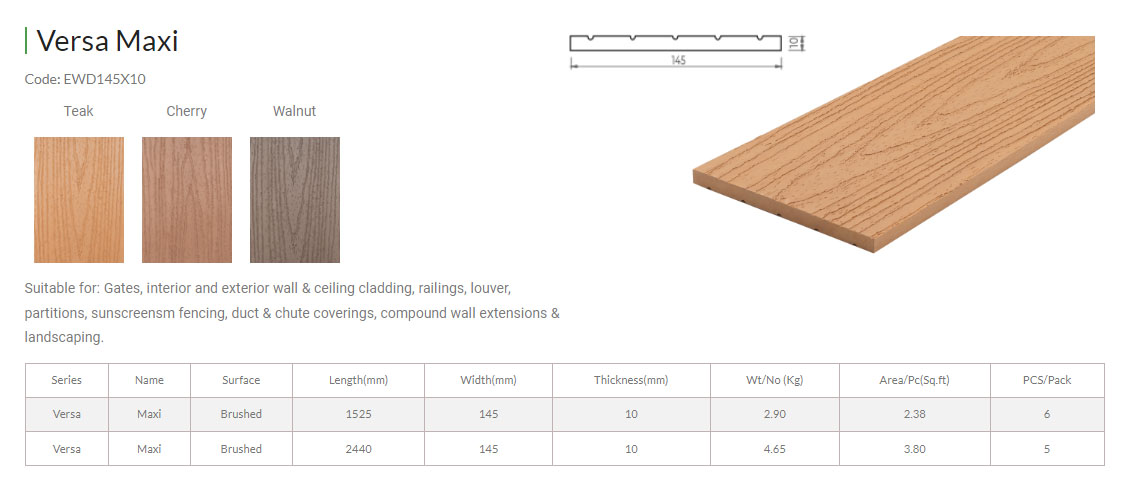The Advantages of Using WPC Exterior Louvers over Traditional Materials
Introduction
Embrace the future of versatile and eco-friendly shading solutions. Let us Explore the superior advantages of Wood-Plastic Composite louvers over traditional materials at Everwood WPC
Louvers
Louvers are architectural elements used for shading, privacy, ventilation, and aesthetic purposes in both residential and commercial buildings. They are constructed using wood, steel, metals such as aluminum, and WPC or wood plastic composite, a combination of wood fibers and thermoplastic materials. WPC is an ideal material for WPC lovers.
Features of WPC Louvers
The wood fibers in the WPC provide strength, texture, and visual appeal, while the plastic component enhances durability, moisture resistance, and UV protection. WPC louvers fare better than conventional materials on several scores.
High-strength and lightweight
WPC is characterized by very high density and, at the same time, lightweight, making it a sturdy material that can take on the onslaught of harsh exterior conditions.
Aesthetics and material performance
With the appearance of premium prefinished wood and the ability to look good over many years to come, WPC louvers bring in excellent aesthetics and superior material performance like no other material.
Durability and Weathering Capability
WPC louvers are highly durable; they are resistant to rot, decay, insect infestation, and damage due to moisture, and therefore last much longer than wood. The presence of high-density thermoplastics in WPC bestows inherent weathering characteristics and they can withstand exposure to harsh weather conditions, including rain, humidity, and UV radiation over multiple annual weather cycles.
Moisture Resistance
WPC louvers are waterproof and moisture resistant; they do not warp or swell when exposed to moisture unlike wood, which makes them better suited for external applications than wood or any other conventional material.
Termite and Corrosion Resistance
Louvers are generally highly susceptible to corrosion due to humidity or seaside salinity and termites on inland installations. WPC Louvers, however, are better suited for such applications because of their inherent anti-corrosive and termite-resistant characteristics.
UV Resistance
With high UV resistance and anti-fading characteristics, WPC louvers do not fade or degrade with prolonged sun exposure and are none the worse for extremely hot summers.
Low Maintenance
As WPC louvers do not fade or corrode or develop cracks, they do not need any staining, sealing, or painting. There is hardly any maintenance needed beyond regular cleaning with mild soap and water to keep them in good condition.
Design Flexibility
Being non-structural elements, WPC louvers can be customized to various shapes, sizes, and finishes, allowing for design flexibility to suit different architectural styles and project requirements. They can be customized to achieve specific visual effects.
Cost-Effectiveness
Although the initial cost of WPC louvers may be slightly higher than that of conventional materials, long-term cost savings are more appreciable due to the durability and low maintenance of WPC.
WPC louvers thus score over conventional materials in several aspects. Today, Everwood WPC is a much sought-after material for louvers. Everwood WPC Louvers provide a combination of aesthetic appeal, durability, weather resistance, sustainability, and low maintenance. They offer a modern alternative to louvers made of traditional materials such as wood, steel, or aluminum, providing versatile solutions for shading, privacy, and ventilation in various architectural projects.


